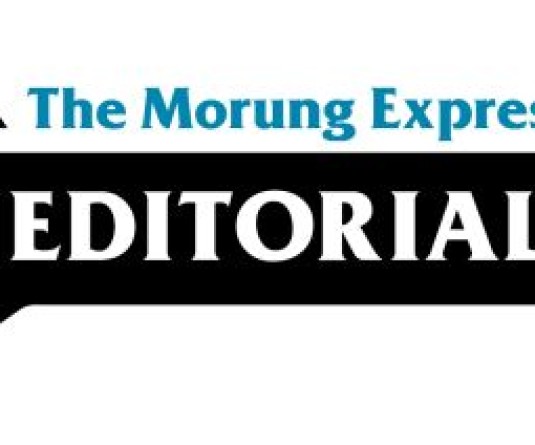
The thought of seeing the top leaders from the different Naga political groups coming together in some form or the other and resolving to speak with one voice to the Government of India, has always been the hope and prayer of every Naga for many many years now. Therefore when a joint statement was signed on August 22, 2011 with the top rung leaders of three groups agreeing to “strengthen and broaden the peace process based on the uniqueness of Naga history”, a sense of quiet relief is being expressed among the people. The response coming in is that finally, things are moving forward and Nagas can indeed look ahead for better things to come. Nevertheless there are still many skeptics out there even among the Nagas and rightly so because there have been too many failures in the past when it comes to peace and reconciliation of the warring factions. And therefore this is also an opportunity for the Naga political groups to prove the skeptics wrong and show to the world that they can indeed come together for the common good and not just in word or joint statements but also through meaningful action and joint participation.
The present dialogue of the top leaders needs to be sustained so that through face-to-face deliberations, they can steadily resolve tough issues, build trust amongst them and to develop effective working relationships in order to implement the agreements arrived at. Off-course it is also a fact that reconciliation cannot exist in a vacuum. And for this, hopefully the Forum for Naga reconciliation (FNR) can help in identifying the issues or subjects that can become the building block (say a common agenda) for cooperation and joint action in the days to come. And once issues are identified the FNR should help in facilitating consensus through collaboration. This off course will require the recognition of and respect for everyone's ideas, opinions, and suggestions. Not every point will meet with everyone's complete approval. The goal is to have individuals/groups accept a point of view based on logic; work on a win-win situation and in the process act on maximizing joint outcomes. And off course we have to find the underlying shared interests. Finding out these commonalities will remain vital while searching for a common ground.
While all this is easier said than done, the FNR should be trusted to do the right thing, after all it has patiently build the reconciliation process block by block and whatever critics may say, the FNR has overcome the many difficulties strewn along the way with quiet determination, patience and humility. One should not forget that when the FNR began its Journey of Common Hope there was so much of mistrust, suspicion and hatred among the armed groups. Today there is better understanding among the leaders and we have a climate of trust and goodwill. The August 20 & 22, 2011 high level meetings of top leaders and their willingness to share a common space is indeed significant and we welcome this as the outcome of a collective effort, will and foresight of the participants and mediators—here the signatories to the Covenant of Reconciliation (COR) and FNR. As stated the FNR consists of well meaning and very capable people who are aware of the situation and know what they are doing. Naga people must continue to pray and give support to the current process.
The present dialogue of the top leaders needs to be sustained so that through face-to-face deliberations, they can steadily resolve tough issues, build trust amongst them and to develop effective working relationships in order to implement the agreements arrived at. Off-course it is also a fact that reconciliation cannot exist in a vacuum. And for this, hopefully the Forum for Naga reconciliation (FNR) can help in identifying the issues or subjects that can become the building block (say a common agenda) for cooperation and joint action in the days to come. And once issues are identified the FNR should help in facilitating consensus through collaboration. This off course will require the recognition of and respect for everyone's ideas, opinions, and suggestions. Not every point will meet with everyone's complete approval. The goal is to have individuals/groups accept a point of view based on logic; work on a win-win situation and in the process act on maximizing joint outcomes. And off course we have to find the underlying shared interests. Finding out these commonalities will remain vital while searching for a common ground.
While all this is easier said than done, the FNR should be trusted to do the right thing, after all it has patiently build the reconciliation process block by block and whatever critics may say, the FNR has overcome the many difficulties strewn along the way with quiet determination, patience and humility. One should not forget that when the FNR began its Journey of Common Hope there was so much of mistrust, suspicion and hatred among the armed groups. Today there is better understanding among the leaders and we have a climate of trust and goodwill. The August 20 & 22, 2011 high level meetings of top leaders and their willingness to share a common space is indeed significant and we welcome this as the outcome of a collective effort, will and foresight of the participants and mediators—here the signatories to the Covenant of Reconciliation (COR) and FNR. As stated the FNR consists of well meaning and very capable people who are aware of the situation and know what they are doing. Naga people must continue to pray and give support to the current process.






